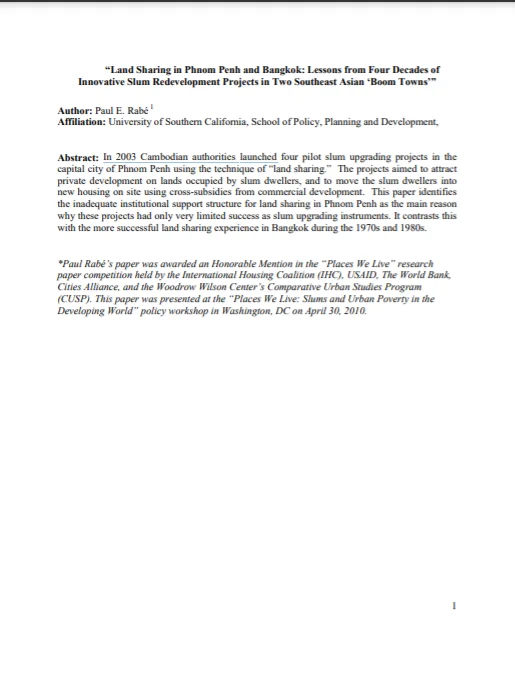
In 2003 Cambodian authorities launched four pilot slum upgrading projects in the capital city of Phnom Penh using the technique of “land sharing.” The projects aimed to attract private development on lands occupied by slum dwellers, and to move the slum dwellers into new housing on site using cross-subsidies from commercial development. This paper identifies the inadequate institutional support structure for land sharing in Phnom Penh as the main reason why these projects had only very limited success as slum upgrading instruments. It contrasts this with the more successful land sharing experience in Bangkok during the 1970s and 1980s.